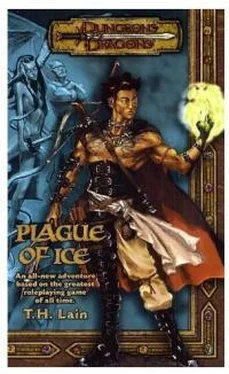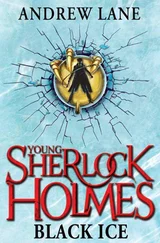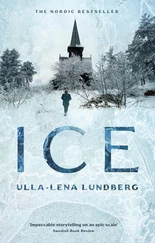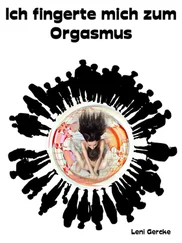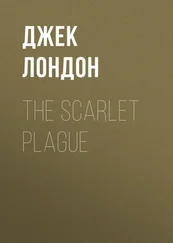T Lain - Plague of Ice
Здесь есть возможность читать онлайн «T Lain - Plague of Ice» весь текст электронной книги совершенно бесплатно (целиком полную версию без сокращений). В некоторых случаях можно слушать аудио, скачать через торрент в формате fb2 и присутствует краткое содержание. Год выпуска: 2003, Жанр: Фэнтези, на английском языке. Описание произведения, (предисловие) а так же отзывы посетителей доступны на портале библиотеки ЛибКат.
- Название:Plague of Ice
- Автор:
- Жанр:
- Год:2003
- ISBN:нет данных
- Рейтинг книги:5 / 5. Голосов: 1
-
Избранное:Добавить в избранное
- Отзывы:
-
Ваша оценка:
- 100
- 1
- 2
- 3
- 4
- 5
Plague of Ice: краткое содержание, описание и аннотация
Предлагаем к чтению аннотацию, описание, краткое содержание или предисловие (зависит от того, что написал сам автор книги «Plague of Ice»). Если вы не нашли необходимую информацию о книге — напишите в комментариях, мы постараемся отыскать её.
Plague of Ice — читать онлайн бесплатно полную книгу (весь текст) целиком
Ниже представлен текст книги, разбитый по страницам. Система сохранения места последней прочитанной страницы, позволяет с удобством читать онлайн бесплатно книгу «Plague of Ice», без необходимости каждый раз заново искать на чём Вы остановились. Поставьте закладку, и сможете в любой момент перейти на страницу, на которой закончили чтение.
Интервал:
Закладка:
T. H. Lain
Plague of Ice
Prologue
… The nameless city, for such it was even when it was inhabited, stood for well over a thousand years in the depths of the Fell Forest. It was not called the Fell Forest or any other name then. The wizards and sorcerers of the city introduced the gnoll tribes to the forest, hoping that they would discourage uninvited guests. The ploy worked beyond their wildest dreams, as few people visited in the ages since.
A millenium later, The city’s basalt towers still stood, perfect and undamaged through centuries of neglect, a silent testament to the skill of those wizards who raised them from the earth. The city’s builders formed a cabal of mages who turned their back on the world to pursue their research in secret, and it was a great experiment. The emblems of Uncaring Boccob and Wee Jas, deities of magic, were etched into the sides of each tower, in hope that those gods might bless the endeavor and watch over the city. In fact, no such thing happened.
No one knew any of this in the walled frontier cities of Atupal and Klionne, places remarkably lacking in curiosity regarding any history, including their own. Centuries after the abandonment of the towers, the residents of the closest towns had no idea that they shared a common origin; indeed, they had no idea that the towers even existed. The wizards’ city was erected in a deep valley within the forest, so that even the tallest of its towers were not visible to the outside world. Thus was their privacy ensured. The location was so secret that mention of it survived only in scattered, ancient tombs and nearly forgotten myths.
The story of the city’s fall was inglorious. No plague, no war or disaster claimed its inhabitants but merely time and waning commitment. The city’s original inhabitants were content to lock themselves away with their books and spells, but the same was not true of their children and grandchildren. Despite fears that the city’s secrets would be lost, eventually malcontents were allowed to leave the city if they promised never to speak of its existence. Some of these emigrants established themselves as the heroes and rulers of an age. All kept their promises and never spoke of their home.
Still, the magicians’ efforts to protect the nameless city proved fruitless. The city was never betrayed, but its vitality and life slowly ebbed away as later generations were drawn into the wider world. The experiment failed. As the last inhabitants grew old and died, the city was left to the ravages of the Fell Forest. Nature moved in, but even it could not erase the enchanted architecture. The towers remained. More importantly, locked away in the bowels of the city were potent artifacts of the wizards, items whose existence couldn’t be hidden forever. Eventually, adventurers, antiquarians, and treasure-seekers came to the Fell Forest in search of power and knowledge.
Some stumbled upon the last remaining references to the nameless city and went looking for it. Others set out blindly across the Berron Bridge into the Fell Forest with little idea of what awaited them. Most would be killed by the orcs, gnolls, or other local menaces for their weapons and armor.
All of these seekers passed through Atupal or Klionne before jumping off into the forest, and they were unfailingly surprised by the locals’ lack of interest in what might lie beyond the screen of trees. Some adventurers elected to pass through in secret to avoid drawing derision from merchants and farmers.
Such was the case with a group of four heavily armed humans who passed through Klionne. They made no mention of seeking the nameless city. Once inside the Fell Forest, all their skill was needed to evade wolf packs and fight off orcs. They found it nearly impossible to navigate through the dense timber. Tired and desperate, they eventually stumbled upon the legendary lost city, through luck as much as planning. The gnolls and orcs would not pursue them into its silent streets, and the adventurers foolishly assumed they were safe within its boundaries.
But the arcane architects were not fools, and their treasures were not for the unwary. The world might never know what triggered the eruption, but soon after the intruders’ arrival, a torrent of cold poured from the city’s central courtyard. The initial blast of frost was too much for the weakened humans, and it was only the first wave of an arctic deluge that would flow across the hills and valleys, destroy the Fell Forest, and ultimately threaten to bury the whole region beneath a glittering glaze of dazzling, deathly white.
1
“You see those snow-capped mountains over there?” Regdar asked.
“I sure do,” answered Lidda. “What of it?”
“A week ago they weren’t snow-capped.”
“Oh.” The halfling shielded her eyes and studied the distant range with new interest.
Pelor’s sun shone warm overhead, but Regdar and Lidda were dressed in winter furs as they advanced through a grassy field a day’s march outside of Klionne. Birds sang merrily and rabbits played nearby, blissfully unaware of the coming storm. Clouds gathered in the distance, sprawling their white-gray menace across the horizon.
“How much farther do you think it is?” asked Lidda. “I’m starting to sweat. That can’t be a good thing. I could freeze when the temperature drops.”
Regdar peered into the distance. “The scouts in Klionne said it’s moving pretty fast. It won’t be long now.”
“I don’t enjoy the cold, you know that?” Lidda said. “I can’t imagine why I agreed to this mission.”
“I can.” Regdar cast her a half-smile. “It was the reward offered by the magistrate of Klionne. You should thank me for arguing on your behalf. He was wary of hiring a thief.”
“A thief?” Lidda feigned shock. “Really, Regdar, you surprise me. Labels like that are so unfortunate. I expected better from you.”
“Perhaps you’ve forgotten our first meeting.”
Lidda stamped her foot restlessly “How often are you going to drag that up?”
“As often as possible,” Regdar said, “because the lies you tell about it get more amusing each time.”
This was a game they’d played many times, and Lidda usually enjoyed it, but between the warm furs and the boredom of waiting, she was in no mood for it today. She let the dialog drop.
Minutes later, Regdar craned his neck upward. “I think I see something,” said the warrior. He pointed into the distance. “Do you see it?”
By squinting, Lidda could barely make out a field of pale, frosted whiteness rising twenty or thirty feet off the ground like a roiling wall. As she watched, it grew noticeably in height. Whatever it was, it was headed toward them at an impressive speed.
Regdar faced this strange phenomenon head-on. It raced silently across the fields, generating no wind or vibration as it came, almost as if it wasn’t there at all but was a massive illusion. As it drew near, it became clear that it resembled a wave, twisting and flowing as it raced forward, shimmering with shades of white and blue.
At points along its undulating surface, Lidda could see through the wall of white. The world was brighter on the other side, lit by the sun’s dazzling reflection off the ground. Through the field’s tint, a thick, blue layer of ice seemed to cover the earth. Lidda and Regdar felt like swimmers in the path of a tidal wave. Instinctively, Lidda closed her eyes and crouched as the wave passed over. She expected pain, but all she felt was cold.
The temperature dropped sharply, and even though the sun was still in the sky above them, its rays were weak, lending little of its heat to this new world. The contours of the land were the same, but it was covered with snow. Their feet were planted in it, and snow clung to their shoulders. Metal armor and weapons were instantly frosted.
Читать дальшеИнтервал:
Закладка:
Похожие книги на «Plague of Ice»
Представляем Вашему вниманию похожие книги на «Plague of Ice» списком для выбора. Мы отобрали схожую по названию и смыслу литературу в надежде предоставить читателям больше вариантов отыскать новые, интересные, ещё непрочитанные произведения.
Обсуждение, отзывы о книге «Plague of Ice» и просто собственные мнения читателей. Оставьте ваши комментарии, напишите, что Вы думаете о произведении, его смысле или главных героях. Укажите что конкретно понравилось, а что нет, и почему Вы так считаете.
